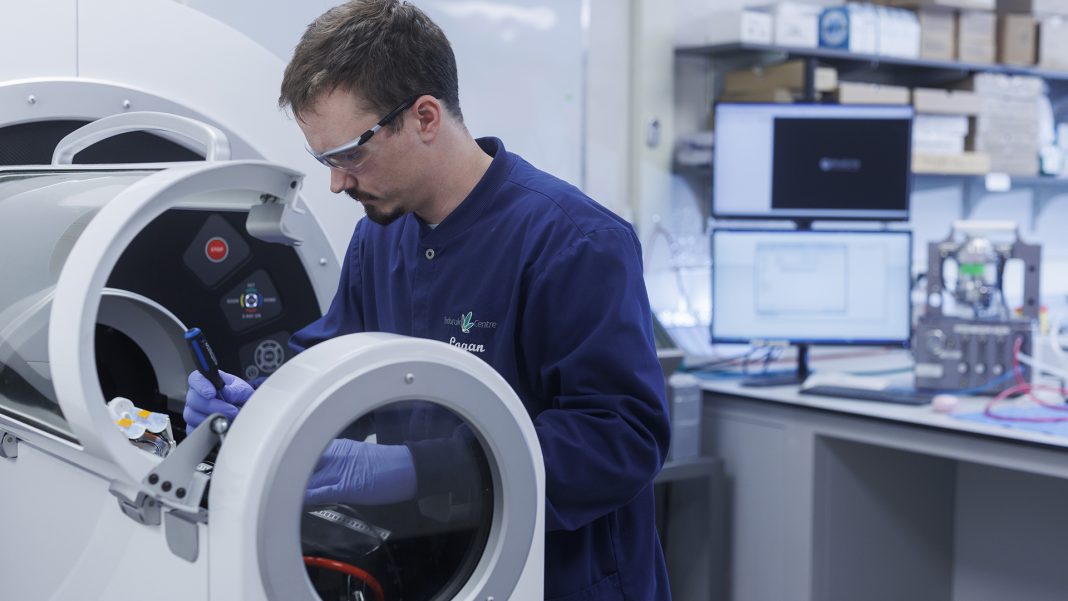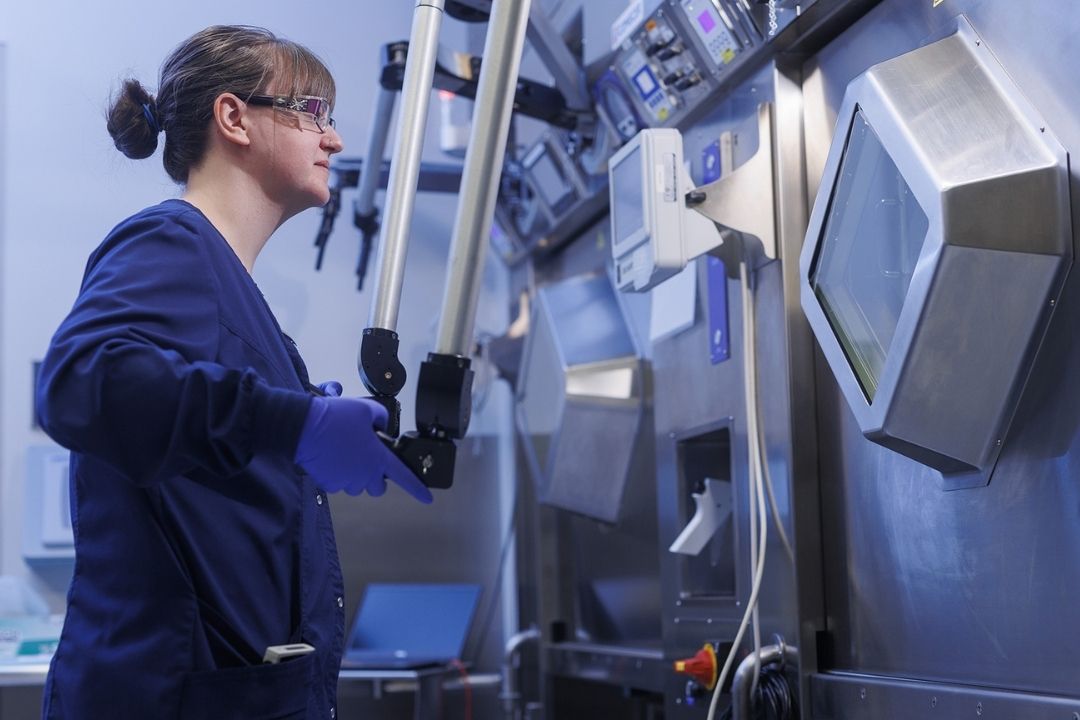
Fedoruk Centre: Pioneering Nuclear Research in Saskatchewan and Globally
The Fedoruk Centre is working to place the province of Saskatchewan, Canada, among global leaders in nuclear research, development, and training.
By Innovation News NetworkThis article was published to the Innovation News Network on October 7, 2024.
View the original article here.
The Sylvia Fedoruk Canadian Centre for Nuclear Innovation Inc. (Fedoruk Centre) was established in 2011 as a not-for-profit corporation to help place the province of Saskatchewan among global leaders in nuclear research, development and training, through investment in partnerships with academia and industry for maximum societal and economic benefit. This aspiration builds on a world-class industry of uranium mining in the province and 70 years of improving the health of tens of millions of people around the globe with cobalt cancer therapy, which was developed in the 1950s by a Saskatchewan team including Harold Johns and Sylvia Fedoruk.
The Fedoruk Centre is governed by an independent Board of Directors and has a single member – the University of Saskatchewan. The operation is funded through an agreement with the provincial government, plus revenue from third parties for nuclear products, services and fees for user access to the Saskatchewan Cyclotron Facility, which is owned by the University of Saskatchewan and operated by the Fedoruk Centre.
Accelerating nuclear science, development, and training
The Fedoruk Centre business is comprised of four key activities that are intended to create opportunities for Saskatchewan people and academic leaders to participate in nuclear science, technology or related policy research:
- The Fedoruk Centre invests in partnerships with Saskatchewan post-secondary institutions, establishing new academic leaders to attract young people to pursue careers in nuclear subjects. Since 2015, four Fedoruk Chairs have been created at the University of Saskatchewan and the University of Regina, addressing radio-pharmacy, veterinary nuclear imaging, nuclear imaging detector technologies, and neutron imaging. Each Chairholder has received full salary support for five years, plus start-up funding for research operations. As the province of Saskatchewan is now anticipating the introduction of nuclear power in the 2030s, the Fedoruk Centre plans to accelerate investment in new academic leaders, who will build a supporting workforce of highly qualified people to sustain safe, reliable operation of nuclear technologies in decades to come.
- The Fedoruk Centre provides funding for projects that are led by Saskatchewan researchers to generate nuclear innovations and provide hands-on training for students and post-docs. Over the past ten years, the Fedoruk Centre has awarded more than C$7.8m in grants supporting 50 research projects that have enabled Saskatchewan scientists to contribute broadly to subjects in the nuclear domain: energy, health, environment, materials, and social sciences. There is an annual competitive Call for Proposals, which are evaluated by criteria of alignment, feasibility, partner leveraging, and potential for social and economic impacts. One outstanding project example was led by University of Regina Professor Esam Hussein, ‘Developing Technical Capacity for Understanding the Practical, Regulatory and Economic Viability of… Introducing Nuclear Power into a Small, Previously Non-Nuclear Jurisdiction’. The project engaged 14 faculty task leaders from the University of Saskatchewan and the University of Regina, together with their students, to analyse criteria for placement of a future small modular reactor (SMR), from the perspectives of their various disciplines.
- The Fedoruk Centre operates the Saskatchewan Cyclotron Facility, which encompasses a TR24 Cyclotron (manufactured by Advanced Cyclotron Systems Inc., in Vancouver), as well as labs for the safe handling of nuclear substances, equipment to manufacture and qualify radiopharmaceuticals for clinical applications in humans, scanners for nuclear imaging of small animals and plants, and capacity to host living specimens for preclinical research or other life sciences. The facility is accessible by users from academia and industry to advance their programmes of innovation and education in radiochemistry, nuclear imaging, or therapies. The facility also produces radioisotopes for a supply chain that supports clinical trials, medical applications, and industrial products. It is the only source in Saskatchewan for the nuclear imaging agent fluorodeoxyglucose (FDG), which is required by regional hospitals for PET-CT scans to diagnose cancer and plan treatments. Over 3,000 cancer patients per year receive PET-CT scans at the nearby Royal University Hospital, with imaging agents produced at the Saskatchewan Cyclotron Facility.
- The Fedoruk Centre is a resource for the public, policymakers, industry, post-secondary institutions and other organisations, providing advisory services in the nuclear domain. For one example, partnering with the University of Saskatchewan and Discover Saskatoon, the Fedoruk Centre produced the 11th International Conference on Isotopes as a service to the World Council on Isotopes. This 2023 event attracted more than 300 participants from industries, universities and government laboratories in 21 countries to a lively interdisciplinary exchange between the developers and producers of isotopes with those who apply isotopes in medicine, industry, agriculture, national security and other fields. As a second example, from 2017 to 2022, the Fedoruk Centre provided expertise and management support to the Canadian Neutron Initiative (CNI) working group, comprised of executives from the University of Saskatchewan, McMaster and three other Canadian institutions. In 2022, with support from 16 Canadian universities, the CNI working group established a new, not-for-profit corporation, Neutrons Canada, to govern, manage, and represent Canada’s infrastructure programme for materials research with neutron beams, enabling Canadians to address major social and economic challenges with access to cutting-edge scientific tools. The Fedoruk Centre continues to provide interim management services for Neutrons Canada as it becomes more established to achieve its national aspirations.

